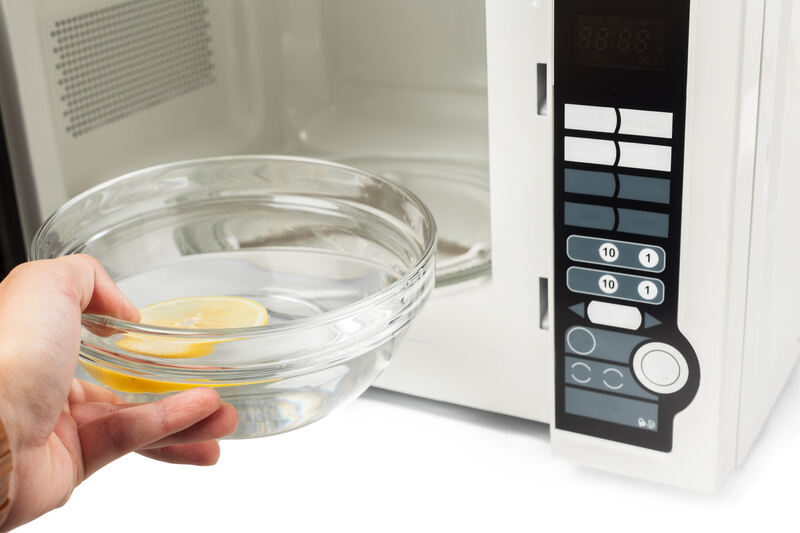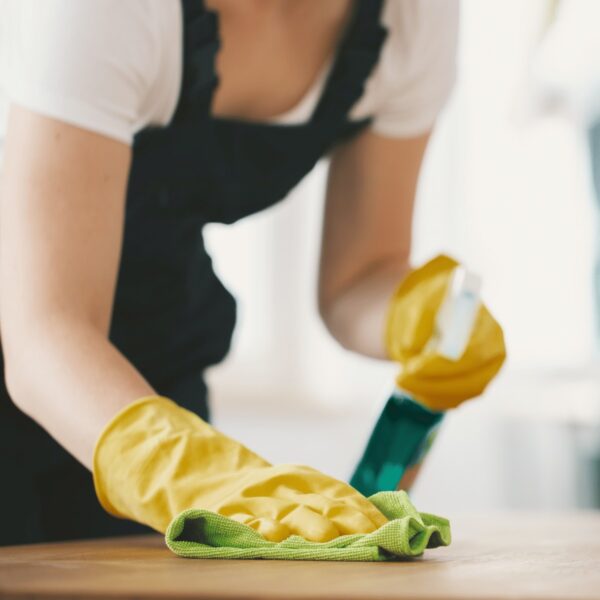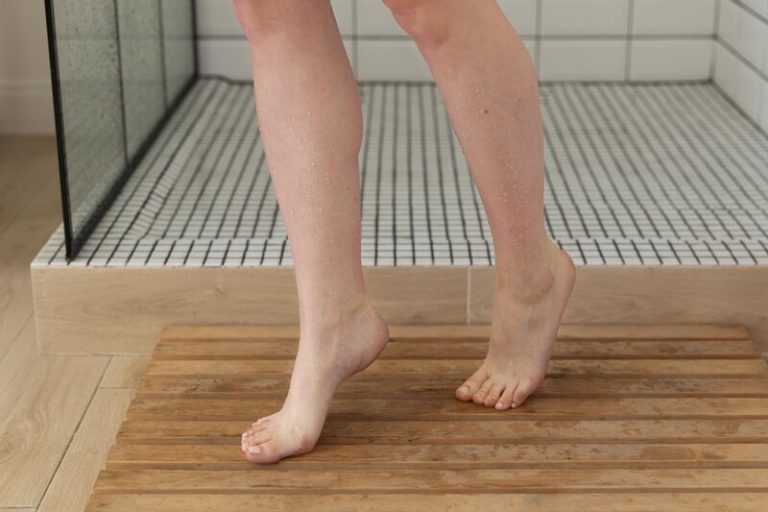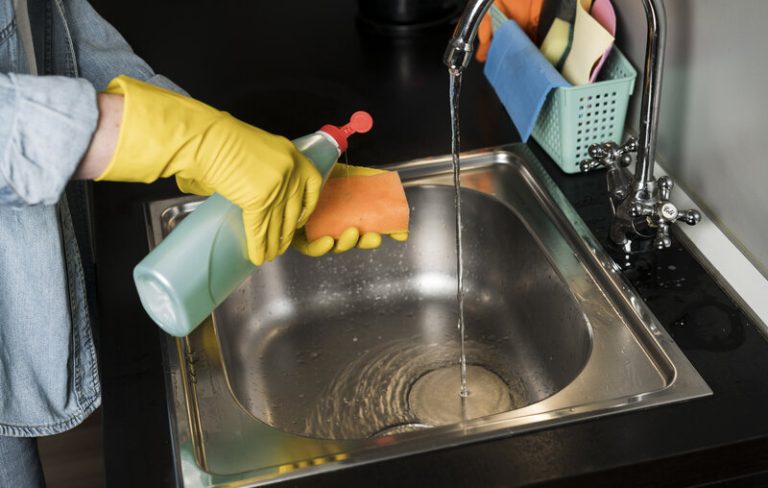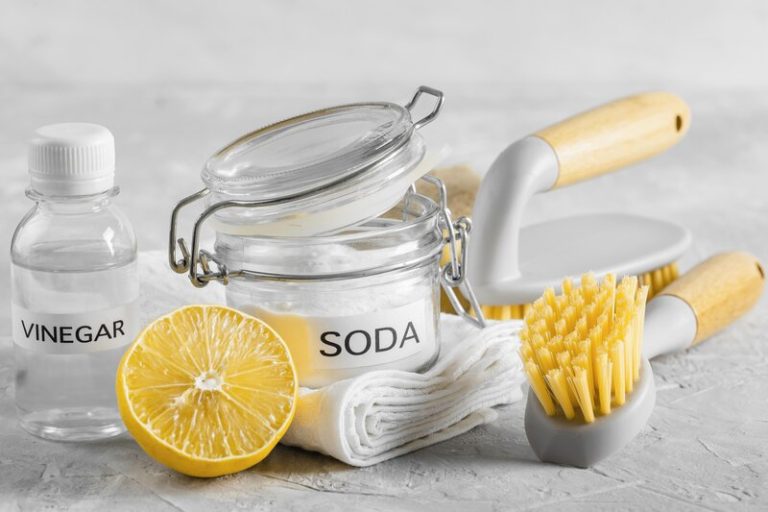If you’re looking for a simple and natural way to freshen up your microwave, try to clean microwave with lemon. This method harnesses the power of lemon’s natural acidity to cut through grease and grime, making your cleaning routine more effective and less labor-intensive.
To master how to clean microwave with lemon, just follow these easy steps. The lemon’s steam helps loosen stubborn food particles while leaving a fresh, clean scent behind.
Not only does this method save you time, but it also eliminates the need for harsh chemicals, offering a safe and eco-friendly solution to keep your microwave spotless. Let’s get started!
How to Clean a Microwave with Lemon?
Basically, a step by step guide on how to clean microwave with lemon is a simple process that involves:
a. Prepare the Lemon and Water Mixture
Start by cutting a lemon in half and squeezing the juice into a microwave-safe bowl filled with about half a cup of water.
Once you have the lemon juice in the bowl, you can place the bowl in the microwave and heat it on high for about three minutes until the water starts to boil. Carefully remove the bowl from the microwave using oven gloves to avoid burning yourself. If desired, you can enhance the cleaning mixture by adding a few drops of essential oil for an extra fresh scent before using it to wipe down the microwave’s interior. Remember, the lemon must be adequately squeezed to release its cleaning properties effectively.
b. Microwave the Lemon and Water Mixture
Place the bowl with the lemon and water mixture into the microwave and set it to heat on high for about 3 to 5 minutes, or until the mixture starts to boil and steam is visible.
This step may seem simple, but it holds significant importance in the cleaning process. Allowing the mixture to boil and generate steam is crucial as the steam works to loosen the grime and stuck-on food particles inside the microwave.
The heat from the boiling water mixed with the zesty essence of lemon creates a powerful cleaning agent that helps in softening the residue, making it easier to wipe away later on. The steam produced by the hot mixture will circulate within the microwave, penetrating even the toughest stains.
c. Let the Steam Do Its Magic
Once the microwave stops, let the bowl sit inside the microwave with the door closed for an additional 5 minutes to allow the steam to work on loosening grease and stuck-on food.
Letting the steam settle inside the microwave is a critical step in achieving a sparkling clean interior. The heat from the steam helps soften the grime, making it easier to wipe away later. This process not only simplifies the cleaning task but also ensures that stubborn stains are effectively tackled. By giving the steam time to penetrate through the dirt, you are essentially setting the stage for a swift and efficient cleaning process. So, take advantage of this simple yet powerful technique for maintaining a spotless microwave!
d. Wipe Down the Inside of the Microwave
Carefully remove the bowl from the microwave and use a sponge or cloth to wipe down the inside surfaces, including the turntable, to remove any remaining residue.
For a more thorough clean, don’t forget to tackle the corners and crevices where food splatters tend to hide. A helpful tool for this task is a Mr. Clean Magic Eraser, which can easily remove tough, baked-on stains. Simply dampen the eraser and gently scrub the problem areas until they are spotless. Remember to also clean the exterior of the microwave, paying attention to the control panel and door handle. By following these steps, your microwave will be sparkling clean in no time!
Benefits of Clean Microwave With Lemon
Although it may seem underestimated and unconvincing, the truth is that clean microwave with lemon offers numerous benefits, including:
a. Natural Cleaning Agent
Lemon is a powerful natural cleaning agent due to its high citric acid content, which makes it effective at cutting through grease and grime without the need for chemical cleaners.
When citric acid comes into contact with dirt and oil, it breaks them down, making it easier to wipe them away. This property not only applies to microwaves but also extends to countertops, cutting boards, sinks, and even stainless steel appliances. The fresh scent of lemon also acts as a natural deodoriser, leaving a pleasant fragrance behind. In addition, its antibacterial properties can help in disinfecting surfaces, making it a versatile and all-natural cleaning solution for various household chores.
b. Fresh Citrus Scent
One of the most appreciated benefits of cleaning with lemon is the fresh citrus scent it imparts, leaving your kitchen smelling clean and pleasant.
The powerful aroma of lemon not only masks unpleasant odors but also helps to eliminate them, creating a more inviting atmosphere in your home. Incorporating lemon into your cleaning routine can uplift your mood and provide a sense of freshness throughout your living spaces.
Whether you are wiping down worktops, freshening up the waste disposal, or simply diffusing lemon essential oil, the scent of this versatile fruit can work wonders in neutralising odors and adding a touch of brightness to your surroundings.
c. Antibacterial Properties
Lemon’s natural antibacterial properties make it an excellent choice for cleaning, helping to eliminate germs and bacteria inside your microwave and on other surfaces.
When diluted with water, lemon juice can be used as a natural disinfectant for cutting boards, countertops, and kitchen sinks. Its acidic nature helps break down grease and grime while killing harmful bacteria. Adding a few drops of lemon essential oil to a homemade all-purpose cleaner can enhance its antimicrobial power.
In bathrooms, a mixture of lemon juice and baking soda works wonders in tackling mould and mildew. Lemon-infused vinegar spray is perfect for wiping down frequently touched surfaces like doorknobs and light switches, keeping your home free from harmful pathogens.
Are There Any Risks or Precautions to Consider?
Whilst cleaning with lemon is generally safe and effective, there are a few risks and precautions to consider, such as:
a. Potential for Acidic Damage
The acidic nature of lemon, due to its citric acid content, can potentially cause damage to certain materials if not used properly.
For example, when applied to porous surfaces like marble or granite, the high acidity of lemon can etch and dull the finish over time. Metal surfaces, such as aluminium or copper, are also susceptible to corrosion when in prolonged contact with citric acid. To avoid damaging these materials, it is advisable to dilute lemon juice with water before use or use alternative cleaning methods.
b. Allergies to Citrus Fruits
Individuals with allergies to citrus fruits should take precautions when using lemon for cleaning to avoid adverse reactions.
Citrus allergies can manifest in various symptoms, including skin rashes, itching, hives, swelling, or even respiratory issues such as coughing, wheezing, or difficulty breathing. These reactions can range from mild to severe depending on the individual’s sensitivity.
For those with citrus allergies, it’s essential to seek alternative cleaning methods to maintain a safe environment without triggering allergic reactions. Vinegar-based cleaners can be a great option as they are effective in disinfecting and removing stains without the risk of citrus allergens.
How Often Should You Clean Your Microwave with Lemon?
For optimal cleanliness and to prevent the build-up of food residue and odours, it is recommended to clean your microwave with lemon on a weekly basis or as needed.
Creating a regular cleaning routine for your microwave not only keeps it looking sparkling clean but also ensures that it functions efficiently. A quick and easy way to tackle this task is by placing a microwave-safe bowl filled with water and a few slices of lemon inside the microwave. By heating this mixture for a couple of minutes, the steam produced will help loosen any stuck-on grime, making it easier to wipe away. Once cleaned, maintaining this practice will not only extend the lifespan of your microwave but also contribute to a healthier cooking environment.
To wrap up, choosing to clean microwave with lemon is an effective and eco-friendly method that simplifies appliance maintenance. The natural acidity of lemon not only dissolves grime but also neutralises unpleasant odours, all without resorting to harsh chemicals.
Incorporating this easy technique into your cleaning routine will help keep your kitchen sparkling and your microwave running efficiently. However, if you prefer a more thorough and hassle-free approach to maintaining a spotless kitchen, consider the professional residential cleaning services from TEKA Cleaning.
Our expert team can tackle even the toughest stains and ensure your entire home stays pristine. Don’t wait! Call TEKA Cleaning today on 01233 751 544 to schedule a comprehensive cleaning service and experience the difference for yourself.
Read also:







